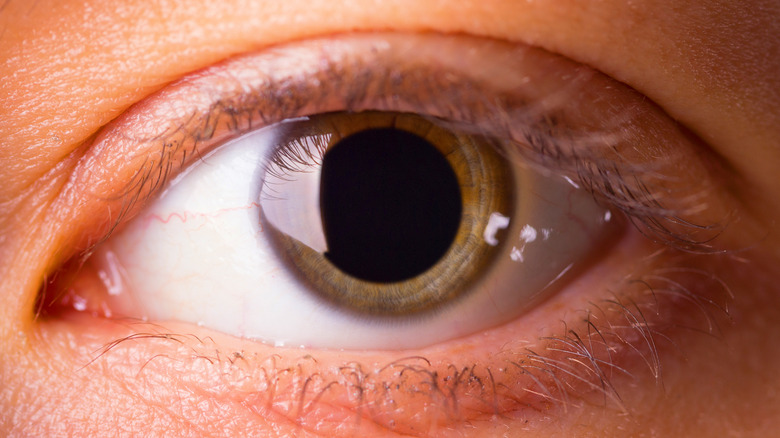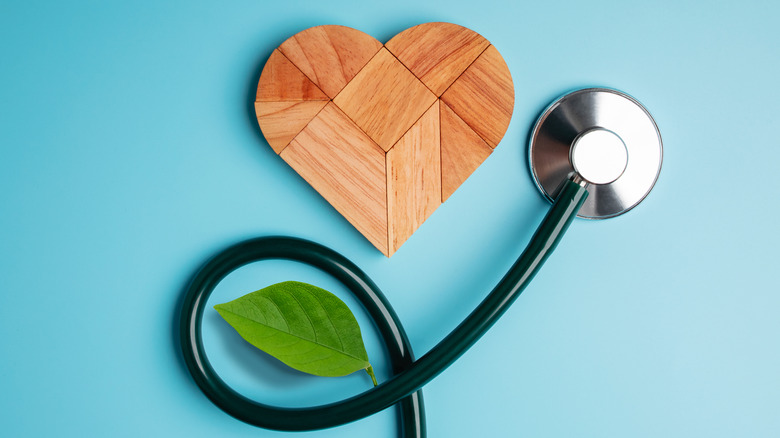The Connection Between Red Eyes And Blood Pressure Explained
Hypertension (also known as high blood pressure) is a dangerous condition, according to Mayo Clinic. Blood pressure refers to the pressure needed to push blood through the arteries. For most people, a normal blood pressure range is less than 120 over 80 mmHg, whereas high blood pressure has a first number of at least 130 and/or a second number of at least 80 (via National Institute of Aging). High blood pressure may eventually lead to heart disease if it isn't treated on time.
This condition is fairly common around the globe. Statistics from the Centers for Disease Control and Prevention (CDC) show that in the U.S. alone, a whopping 116 million people have high blood pressure. They also reveal that in 2019, hypertension caused or contributed to the deaths of more than 500,000 people. Additionally, the numbers state that more men are affected by high blood pressure than women.
Stress is among the leading causes of high blood pressure. Other contributors include obesity, lack of physical activity, genetics, and certain dietary habits, reports WebMD.
Can high blood pressure cause red eyes?
Your eyes contain many tiny blood vessels. Since hypertension increases the pressure in the blood vessels, it can lead to red eyes. According to Florida Eye Specialists, high blood pressure hardens the vessels, which can lead to redness.
Optometrist William White explained in an interview with the American Heart Association, "The blood vessels in the retina can become a little more stiff and hardened. They'll push on each other and cross, like two hoses in a confined space. When it gets really bad, we'll see some of the blood vessels start to leak, we'll see some hemorrhaging. And that can cause a whole range of vision issues."
You may even become prone to hypertensive retinopathy, a condition that damages the blood vessels in the eye (via WebMD). It may lead to headaches, discomfort, and problems with vision.
Therefore, it's important to manage your blood pressure by eating a healthy diet and getting lots of exercise. You may also want to reduce stress and get sufficient rest. Medication is also available, notes Mayo Clinic.


